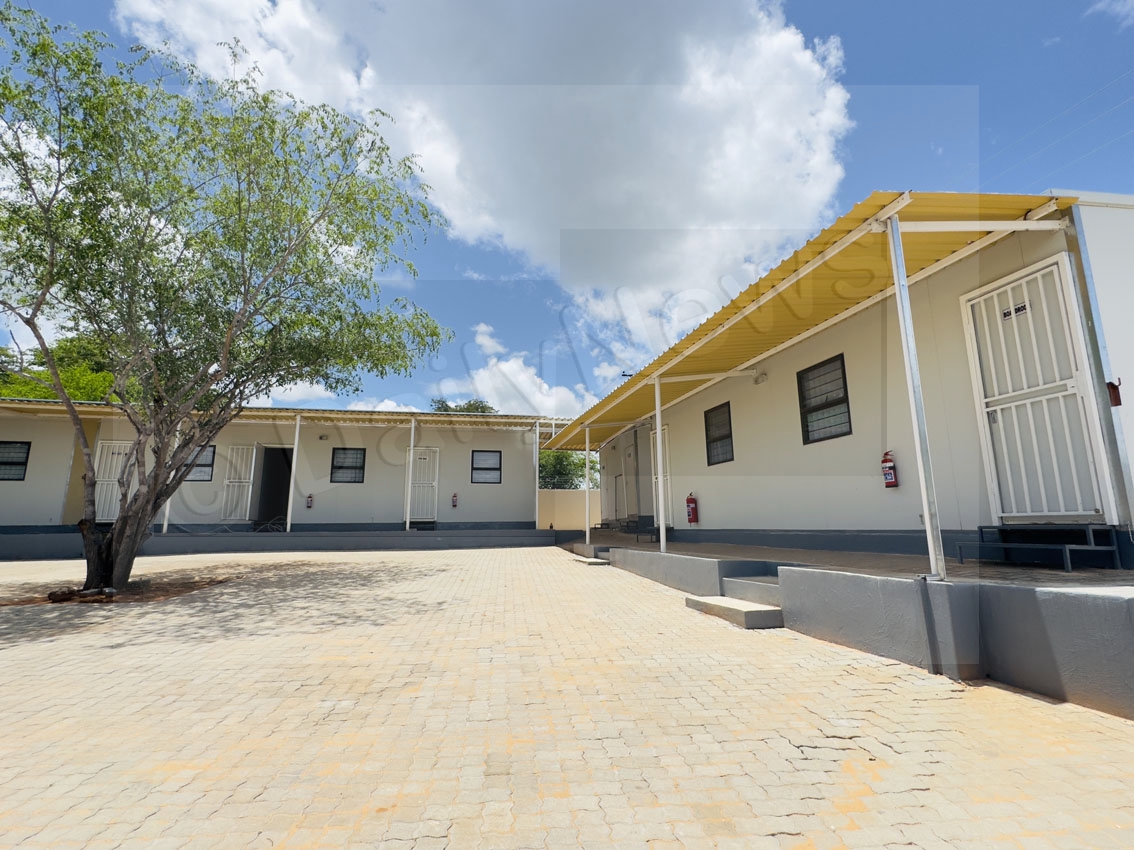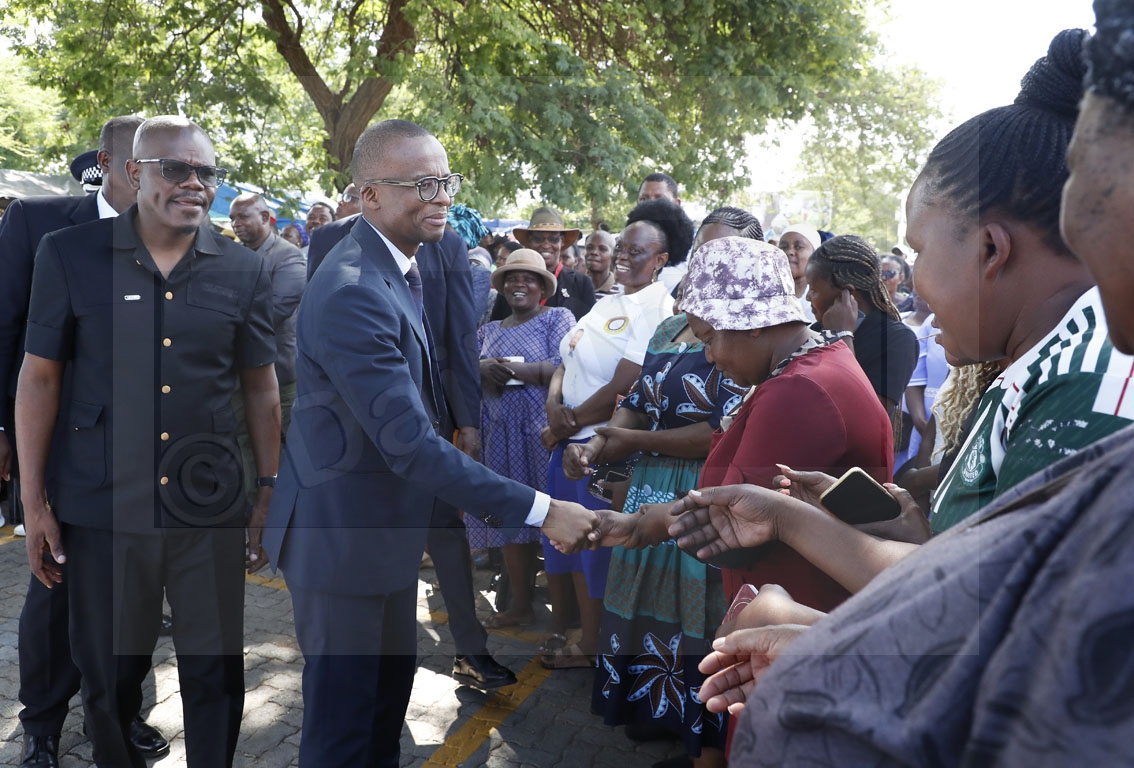Botswana and Zambia collaborate on agriculture
22 Feb 2024
Botswana and Zambia are currently exchanging notes with a view of sharing best practices towards exploiting the value chain, diversifying and growing the agriculture sector.
As part of the mission to enhance the two nations’ collaboration in agriculture, a team from Zambia’s Ministry of Fisheries and Livestock is currently in Botswana on a week-long benchmarking exercise.
At the core of the enhanced collaboration is the finalisation of the Proposed Framework Agreement on Agriculture, with its conclusion expected to be considered by the Presidents of the two countries at their next meeting scheduled for Livingstone, Zambia next month.
Leading the Zambia delegation, Permanent Secretary in the Ministry of Fisheries and Livestock, Ms Himba Cheelo has on Tuesday at the maiden meeting to kick-start activities of their stay in Botswana said the study tour was to explore areas of potential bilateral corporation in the field of livestock production.
As such, she was hopeful that the programme of the benchmarking visit would spare some time to discuss and agree on the proposed Framework Agreement on Agriculture. She noted that the assignment sits at the heart of the aspirations of President Mokgweetsi Masisi and President Hakainde Hichilema in their quest to move their esteemed countries forward.
Therefore, she said its outcome would go a long way in realising the aforementioned aspiration. Following the working visit of President Hichilema to Kasane/Botswana on January 24, 2024 at the invitation of his counterpart, President Masisi, Ms Cheelo said the two Heads of State held bilateral talks and agreed on a number of issues requiring follow-ups, which must be done before their next meeting scheduled to be held next month in Livingstone.
She said agriculture, which include crops, livestock and fisheries featured prominently in the discussions of the two Heads of State.
Ms Cheelo said her delegation’s visit emanates, in part, from the said discussions.
Ms Cheelo said the government of Zambia realises the significant and multi-faceted role that the livestock industry plays in the trajectory of its economic progression.
“It is not only a vehicle for income generation, poverty reduction and employment creation, but it is also important for the nutritional wellbeing of any country,” she said.
Ms Cheelo added that her country was alive to the fact that Botswana was doing well in the sector therefore the benchmarking will accord her delegation an opportunity to take home key lessons in among others effective livestock breeding for enhanced production and productivity through appropriate breeding technologies such as artificial insemination and embryo transfer.
Ms Cheelo said the delegation was also interested on bull management techniques.
“As you may be aware, during the recent bilateral discussions between our two Presidents, Zambia expressed interest in purchasing 50 breeding bulls from Botswana, which are aimed at enhancing the genetic resource within Zambia,” she said.
The delegation also focused on learning how Botswana manages to sustain a vibrant livestock/beef industry despite climate challenges. Ms Cheelo said one of the setbacks, specifically in the beef industry of Zambia, has been the poor condition of animals sold by farmers during the dry season.
“Our nation has always wondered how Botswana, with all her climatic challenges manages to sustain a vibrant livestock/beef industry that addresses not only local needs but has also penetrated the international market space,” she said.
The Zambia delegation will also pay attention to vaccine production and distribution.
“I am aware that Botswana has remained a hub for vaccine production in Southern Africa for many years now. In this regard, my team looks forward to learning about your successes in vaccine production, including the supply system of drugs to your farmers throughout the country,” said Ms Cheelo.
She added that the engagement of the two Heads of State discussed issues of mutual benefit aligning them to each country’s strengths. Considering that Zambia was the region’s mastermind in fisheries and aquaculture, Ms Cheelo said her team was ready to share experiences and lessons from Zambia in the area of aquaculture.
As such, she said her country was ready to host a team from Botswana in the near future to discuss the subject. Other than coming with a shopping list, Ms Cheelo also added that Zambia was equally willing to share where the country has a comparative advantage. She said Zambia has made significant strides in the area of aquaculture.
She said she was alive to the fact that aquaculture was an area of interest for Botswana, and therefore since her country was doing well in that sector, they were ready to assist.
“Come and see our cages in the lakes, come and see our genetic improvement in real life,” she said. Meanwhile, Director-Policy, Research and Statistics, Ms Mmadima Nyathi has in welcoming the delegation said Botswana was in a drive of holistically resuscitating her agriculture sector.
Ms Nyathi said through the newly launched Temo Letlotlo and the proposed Khumo Letlotlo, among other initiatives government wanted to up its game and generate wealth through livestock and crop production.
She said the sector used to account for 40% of the country’s GDP, but had since experienced drastic decline over the years and was currently contributing about three percent.
Ms Nyathi has concurred with Ms Cheelo that the two nations will surely exchange best practices in what they excel in, therefore Botswana was to learn a handful from Zambia in the aquaculture and fishery sector.
Despite Botswana having a fully-fledged department of aquaculture and fisheries, the sector is still at its formation stage, therefore Zambia will offer the obvious support towards leveraging and exploiting the sector to reach its potential and deliver gains to the nation. She said even though the country was prone to Foot and Mouth Disease (FMD) outbreak, it was doing well on veterinary services.
Based on the strategies in place, Ms Nyathi said the country was able to contain diseases such as FMD and ensure that most parts of the country are disease clean therefore producing beef for the lucrative European Union and other markets across the world.
Despite the small population of livestock, which the government was working tirelessly to grow, she said the quality of the livestock was relatively good.
Ms Nyathi said through advanced reproductive technologies, which were supported by importing best livestock genetics from other countries, it is giving the industry the desired boost.
“We want to take the lead in producing world class livestock breeds,” said Ms Nyathi. ends
Source : BOPA
Author : Moshe Galeragwe
Location : GABORONE
Event : TOUR
Date : 22 Feb 2024




